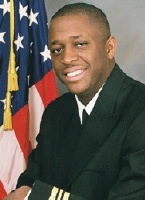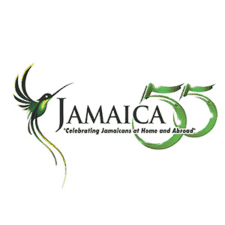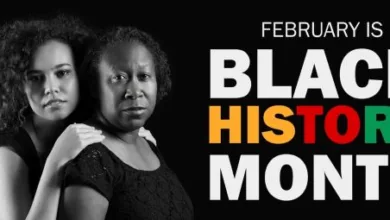Calling on the Caribbean Spirit of Hope against HIV
WASHINGTON, DC – Garth Graham grew up in a hospital. The Jamaican-born head of the U.S. Department of Health and Human Services’ Office of Minority Health looks back with fondness on the days he spent roaming the halls of his hometown infirmary:
“My mother was a nurse in the hospital where I was born, and she often carried me to work with her when I was a kid. Mother was also the main healthcare provider for a group of men on a sugar plantation, and her dedication to her job was inspiring—watching the good work she did motivated me to follow in her footsteps.”
At 17, his career path led Graham out of the Caribbean— and to medical school at Yale, a faculty position at Harvard, and, finally, to a leadership role at the U.S. Department of Health and Human Services. He’s a long way from Jamaica, but his interest in the health problems of Caribbean people remains strong.
Which is why Graham is so concerned about the effects of HIV/AIDS on Jamaica and its island neighbors. He has witnessed firsthand the effect of HIV on his community of origin. “HIV/AIDS has had an enormous impact on Caribbean people, both in the region itself and here in the United States,” he says. “Education and awareness about HIV remains a battle.”
HIV and AIDS have devastated the Caribbean, which ranks second only to sub-Saharan Africa for AIDS prevalence. In 2006, the United Nations estimated that 19,000 Caribbeans died of AIDS, and that an additional 250,000 were living with the virus.
Even more shocking was the estimate that 27,000 people were newly infected with the virus that year. By way of comparison, the U.S.—with a population roughly 15 times that of the Caribbean—reported 38,133 new HIV diagnoses in 2005.
These numbers concern Graham deeply. “Most Caribbean people in the U.S. feel a strong sense of attachment to their communities back home,” he says. This means that they often bring with them beliefs and attitudes that make it more challenging to prevent the spread of HIV—in particular, the stigma attached to HIV in the Caribbean often travels with those who move to the U.S. Cultural taboos about sexuality make it difficult for many Caribbean people to discuss HIV/AIDS.

Garth N. Graham M.D., M.P.H.
“We need to stress the impact of this epidemic on Caribbean nations and on Caribbean Americans,” Graham says. Graham wants to take advantage of the hope for the future that brings people to the U.S. and use it as a catalyst to encourage Caribbean Americans to talk about HIV/AIDS, get tested for the virus, and get into care if they have HIV.
“We put in a lot of time and energy trying to contribute positively to our adopted country. I think it’s important to remember that the legacy we want to leave for our kids is not just our own hard work, but taking care of ourselves and our families,” he says. “It’s important not to be reticent to talk about things that affect our families. You have a new home and a new future—protect that future by talking about HIV with your family, friends, and neighbors, and taking an HIV test.”
In this 26th year of the epidemic, Graham concludes, “For my family in Jamaica, my fellow Caribbean natives living in the U.S.—and all Americans, no matter what their place of origin—we have an opportunity to take action against HIV.” Learn more by going to www.hivtest.org or www.AIDS.gov.


